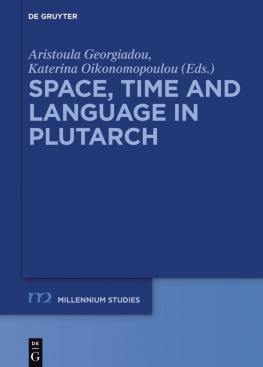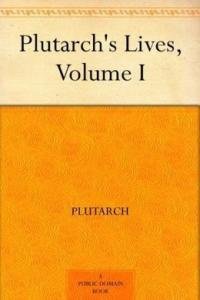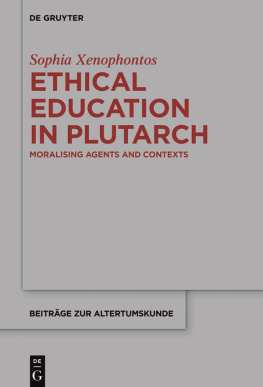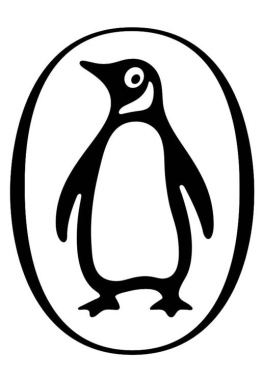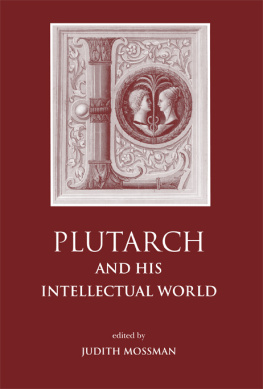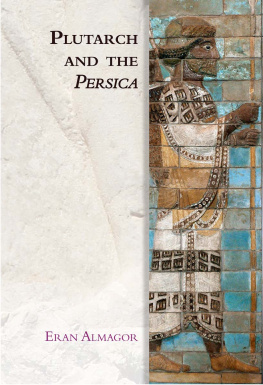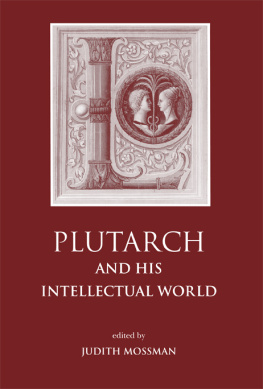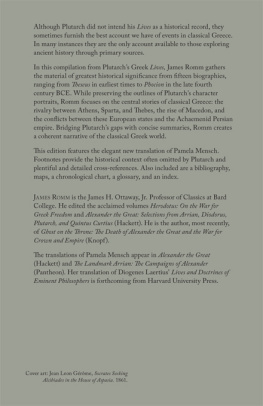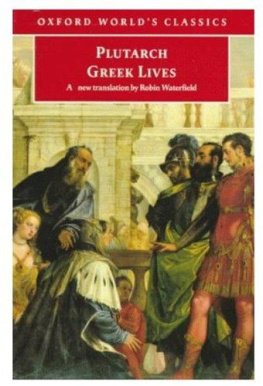Contents
Guide

Space, Time and Language in Plutarch
Millennium-Studien
zu Kultur und Geschichte des ersten Jahrtausends n. Chr.
Millennium Studies
in the culture and history of the first millennium C.E.

Herausgegeben von / Edited by
Wolfram Brandes, Alexander Demandt,
Helmut Krasser, Hartmut Leppin,
Peter von Mllendorff, Karla Pollmann
Volume 67
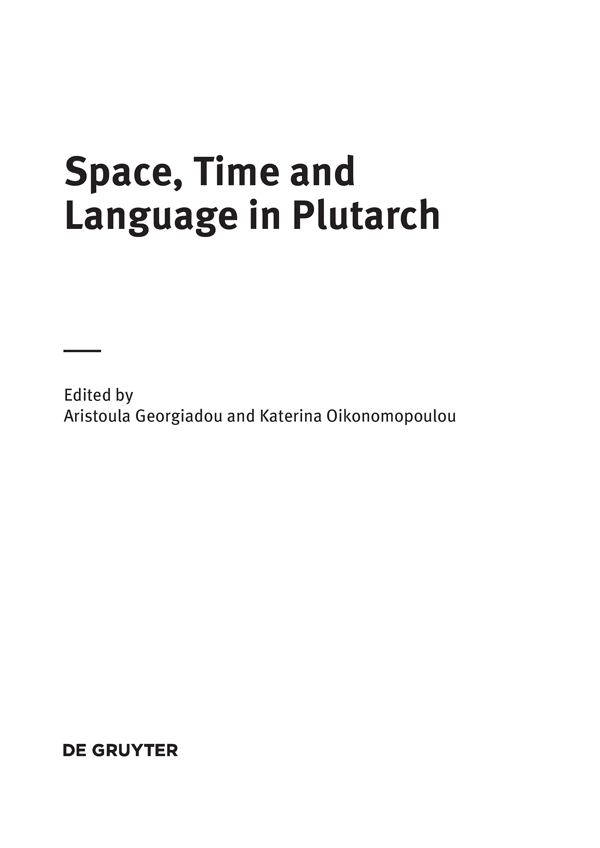
ISBN 978-3-11-053771-0
e-ISBN (PDF) 978-3-11-053947-9
e-ISBN (EPUB) 978-3-11-053811-3
ISSN 1862-1139
Library of Congress Cataloging-in-Publication Data
A CIP catalog record for this book has been applied for at the Library of Congress.
Bibliographic information published by the Deutsche Nationalbibliothek
The Deutsche Nationalbibliothek lists this publication in the Deutsche Nationalbibliografie;
detailed bibliographic data are available on the Internet at http://dnb.dnb.de.
2017 Walter de Gruyter GmbH, Berlin/Boston
www.degruyter.com

To the memory of Franoise Frazier
List of contributors
Alcalde Martn Carlos , Universidad de Mlaga
Alexiou Evangelos , Aristotle University of Thessaloniki
Almagor Eran , Independent Scholar
Aloumpi Myrto , University of Oxford
Beck Mark , University of South Carolina
Berardi Elisabetta , Universit degli Studi di Torino
Brenk Frederick E. , Pontificio Istituto Biblico
Catanzaro Andrea , Universit degli Studi di Genova
Demulder Bram , Katholieke Universiteit Leuven
Desideri Paolo , Universit degli Studi di Firenze
Driscoll David F. , University of Miami
Duff Timothy E. , University of Reading
Fernndez Delgado Jos Antonio , Universidad de Salamanca
Fletcher Lucy , University of Reading
Frazier Franoise , Universit Paris Ouest-Nanterre La Dfense
Geiger Joseph , The Hebrew University of Jerusalem
Goeken Johann , Universit de Strasbourg
Jacobs Susan , Independent Scholar
Kim Lawrence , Trinity University, TX
Lipka Michael , University of Patras
Lucchesi Michele A. , Facolt Teologica dellItalia Settentrionale, Torino
Meeusen Michiel , Kings College London
Nikolaidis Anastasios G. , University of Crete
Oikonomopoulou Katerina , University of Patras
Pelling Christopher B. R. , University of Oxford
Pordomingo Francisca , Universidad de Salamanca
Pugh Ginn Joshua, University of Cambridge
Roskam Geert , Katholieke Universiteit Leuven
Vamvouri Ruffy Maria , Universit de Lausannne
Volpe Cacciatore Paola , Universit degli Studi di Salerno
Xenophontos Sophia , University of Glasgow
Preface
The present volume derives its inspiration from the papers presented at the 10 th Conference of the International Plutarch Society, titled Space, Time and Language in Plutarch s Visions of Greek Culture: Introversion, Imperial Cosmopolitanism and Other Forms of Interaction with the Past and Present , which was held at the European Cultural Center at Delphi, 1618 May 2014. Our choice of Delphi as a venue for the meeting was closely connected with Plutarchs long-standing and deep ties with the city and its sanctuary: ties which extended from his visit to Delphi with his teacher Ammonius on the occasion of Neros tour of Greece in 67 ( The E at Delphi 385B) to his election as one of the two permanent priests of the shrine (perhaps in Trajans reign), down to the reign of Hadrian, when as epimelete of the Delphic Amphictyony he supervised the erection of a statue for the emperor (Dittenberger, Syll . 829A). The wide range of participants included faculty from North American Universities, the United Kingdom, Austria, France, Italy, Germany, Belgium, Switzerland and Spain, Portugal, Greece, Israel, Poland, as well as researchers and graduate students in Plutarchan studies.
The papers that were delivered at the Conference aimed to demonstrate how in Plutarchs works spaces, geographical sites, topographical landmarks, historical locations and locales, religious and mythological landscapes (real or imagined) can prompt reflection on a variety of issues: these include the relationship between local culture (in the Greek cities) and the Roman Empire (an inclusive, cosmopolitan space); the nature of the different kinds of interactions (cultural, military, linguistic, mythological and other) among Greeks, Romans and others at different moments in history (thus opening an avenue for understanding Plutarchs perception and construction of time); and the uses of spatial and temporal concepts and terminology in Plutarchs works.
The present volume includes revised and expanded versions of some of the papers presented at the Conference, with an additional contribution by Mark Beck. It addresses not only Plutarch scholars and Classicists, but anyone in the Humanities and Social Sciences interested in the concepts of space and time, and their codification through literary discourse.
Naturally, this volume does not exhaust all research avenues into the topics of space, time and language, as far as Plutarch is concerned. A next step would involve exploring Plutarchs handling of time and space in relation to other imperial authors, Greek or Latin. Moreover, it would be beneficial to enquire whether there are divergences in the concepts of time and space (and their linguistic representation) between the Moralia and the Lives , or across the different genres in which Plutarch writes. But we believe that what emerges clearly from all contributions is both concepts unquestionable value for gaining a richer understanding of Plutarchs engagement with the past, his versions of Greek paideia , his philosophical layers, and his biographical techniques and moralism.
* * *
The 10 th Conference of the International Plutarch Society would not have been feasible without the financial assistance of the International Plutarch Society (I.P.S.), the Municipality of Delphi, the Archdiocese of Thebes and Lebadeia, and the University of Patras Special Account for Research Funds (). We gratefully acknowledge their support.
Warm thanks go to Anastatios Nikolaidis, Christopher Pelling and Frances Titchener, who provided valuable advice on organisational matters as well as on the preparation and publication of this volume. We are especially grateful to Vasiliki Maria Vlachaki, who at the time was a postgraduate student at the University of Patras, for the zeal and efficiency with which she assisted us at all phases of the Conferences preparation. We are also indebted to Angeliki Tzanetou, who offered stimulating insights and sharp observations on the notions of space and time at critical moments of the project. Last but not least, we wish to express our gratitude to Peter von Mllendorff, the editor of the Millenium-Studien, for his advice and guidance during the preparation of this volume, as well as to the editorial team of the series for overseeing this books passage into print.
Aristoula Georgiadou and Katerina Oikonomopoulou
Introduction: Reading Plutarch through space, time and language
The confluence of space, time and language: Plutarch s Delphi
Delphi is a place that is essential to understanding Plutarch in his historical and social context.

